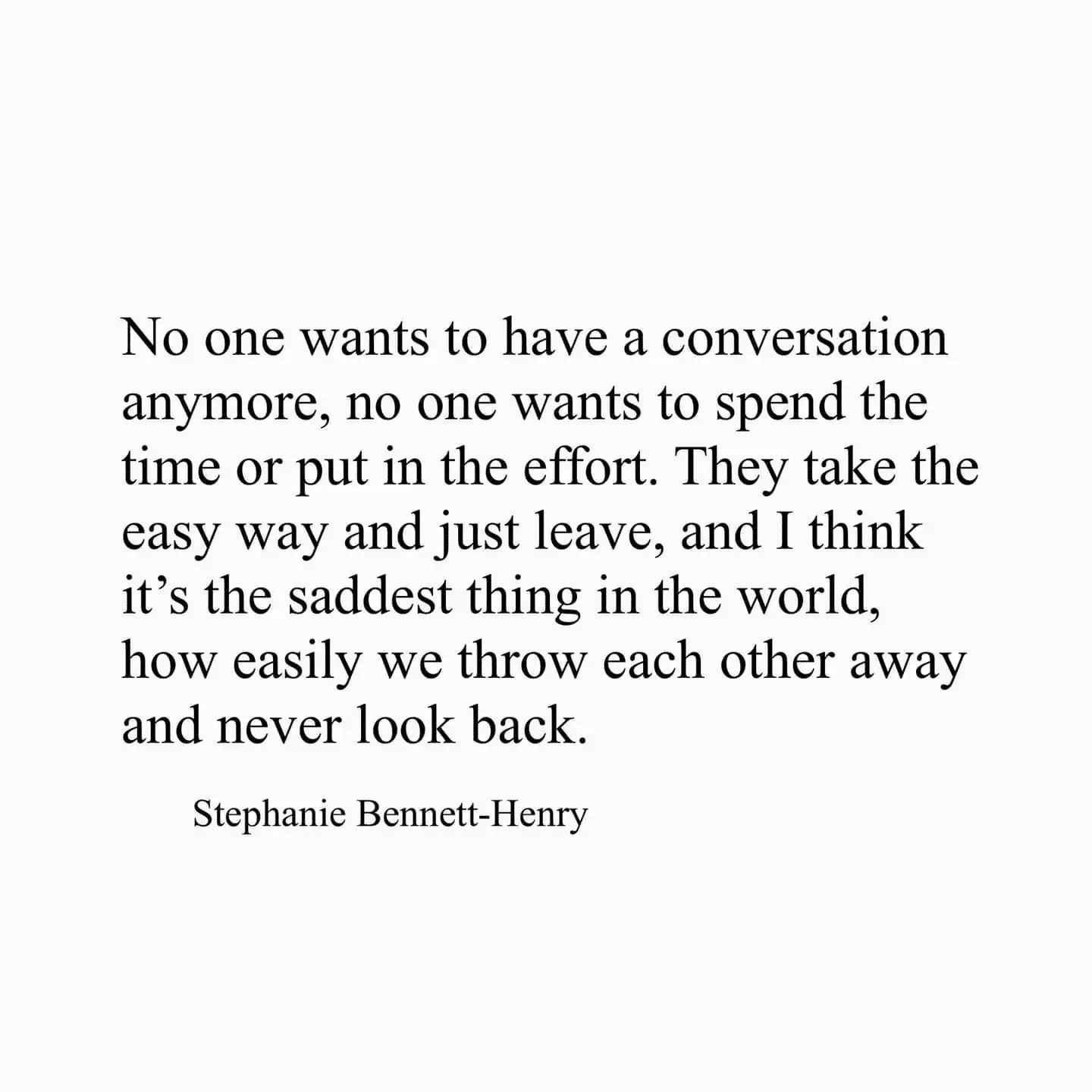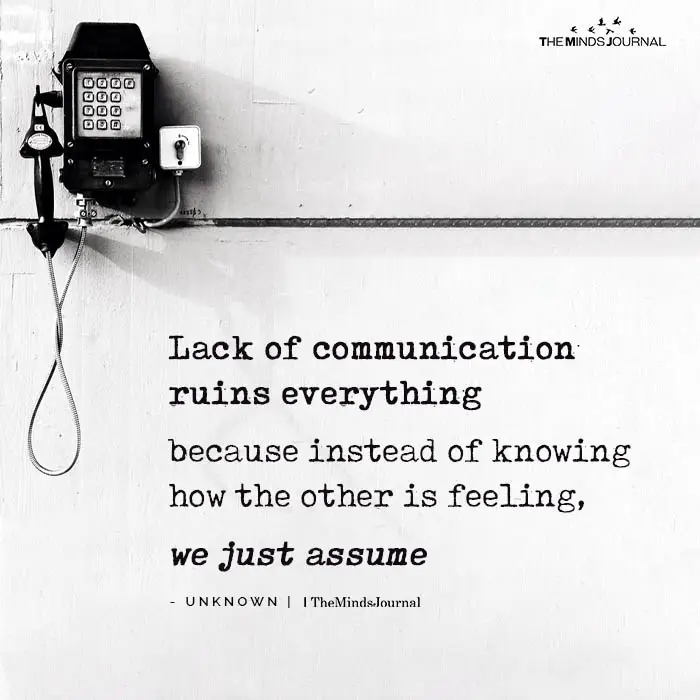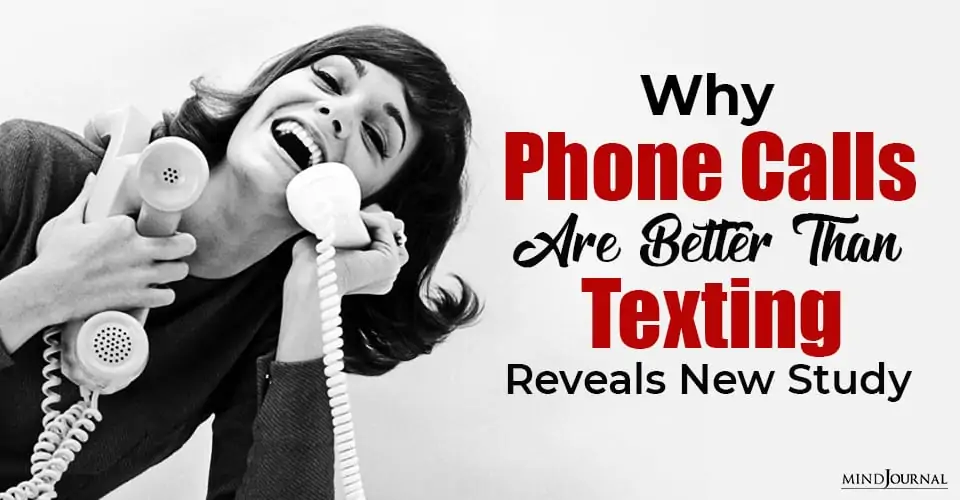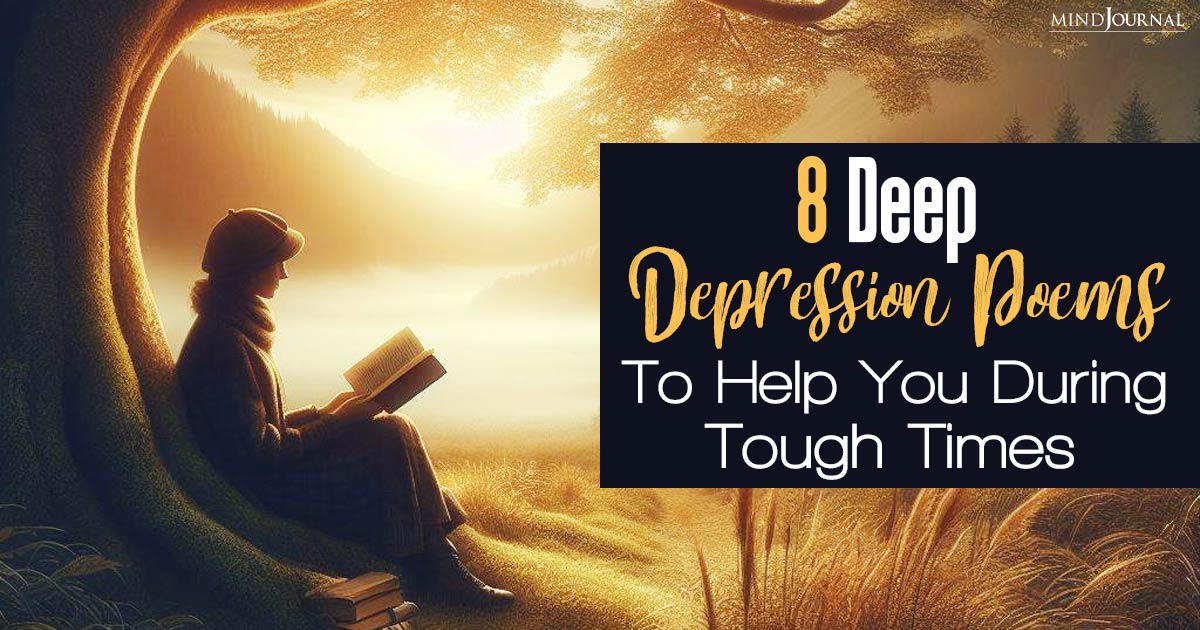A new study suggests that we undervalue the bonding and enjoyment we get from hearing someone’s voice. Phone calls are better than texting as there is something about the voice, in particular, that increases intimacy.
Like most people, I’ve been doing a lot of texting with friends and family lately. COVID-19 (and the physical separation it necessitates) has made socializing in person very limited, which means I’ve had to work harder than ever to keep my relationships strong and healthy.

But a new study suggests that if that’s my aim, texting may not be enough. To stay close at a time when we all need companionship and support, we’d be better off making phone calls or setting up a video call—doing something where we can actually hear another person’s voice.
Read 8 Behaviours and Thought Patterns That Reveal Unhealthy Communication In Marriage
Phone calls versus email
In the study, participants imagined having a conversation with a friend they hadn’t been in touch with for at least two years. They predicted how awkward or enjoyable it would be and how close they’d feel if they connected by phone calls versus email. They also said which medium they’d prefer to use.
Then, participants were randomly assigned to connect with their old friends via phone calls or email and to report back on the experience. Though most people anticipated talking by phone would be more uncomfortable for them, those who spoke on the phone were happier with the exchange, felt closer to the other person, and felt no more uncomfortable than those who’d emailed—even if they’d said they preferred to email, not call.
“We think it’s going to be awkward to talk to somebody, but that just turns out not to be the case,” says lead author Amit Kumar. “Instead . . . people form significantly stronger bonds when they’re talking on the phone than when communicating over email.”
This finding also held true for people conversing with someone they didn’t know at all, according to another part of the study.
Participants were told they’d be using voice chat, video chat, or text chat to get to know a stranger. As in the previous experiment, they were asked to predict what the experience would be like and how close they might become to the person. Then, they were paired with a stranger to do a “fast friends” exercise, asking and answering a series of increasingly personal questions, like “What would constitute the ‘perfect’ day for you?” and “What is one of the more embarrassing moments in your life?”
Overall, those assigned to voice chat or video chat expected conversations to be more awkward and not bring any more closeness than those assigned to text-chat. But they were wrong: Being able to hear people’s voices made them feel significantly closer to the stranger and was no more awkward than text-chatting.
Even though video chatting might seem better than audio alone (because people could see each other’s faces), it didn’t seem to matter—the two methods had similar results.
The power of the voice
These experiments suggest there’s something about the voice, in particular, that increases intimacy.
“There are linguistic cues that come through someone’s voice that suggest a feeling and thinking mind,” says Kumar. “And since connecting with somebody means getting a little closer to their mind, voice-based communication makes that easier or more likely.”
He points to other research that also emphasizes the importance of voice in our communication. For example, people asked to evaluate a potential job applicant found the applicant to be more thoughtful, intelligent, and competent if they’d heard rather than read the person’s job pitch. Similar to Kumar’s study, adding a video to the pitch was no more impactful than hearing the pitch without one.
Read The Art of Conversation: 25 Great Conversation Starters
In another study, people who listened to someone express a political viewpoint that they disagreed with were less likely to dehumanize that person than people who simply read the transcript of their argument. This suggests that talking to people from different political parties (rather than texting or responding to them on Facebook) might help bridge divides.
One reason for this is that our voices convey a myriad of emotions, which helps us understand one another better and feel more empathic. In fact, at least one study found that voice-only communications like phone calls may be superior to those that include video because they help people read others’ emotions more accurately.
Although it might seem trivial, the way we choose to communicate matters. We shouldn’t let fears of awkwardness lead to less promising interactions, says Kumar.

“People can sometimes be relatively insensitive to the effect of their communication media on their experience,” says Kumar. “But if their goal is to become closer to someone, they’d be smarter to pay attention to that.”
Read 11 Conversation Killers To Avoid At All Costs
Texting can be useful if you need to just pass on a quick message or set up a time to talk with someone, he adds. But, he says, if you want stronger social connections—and the happiness and well-being that come with those— phone calls may be the better way to reach out, especially during this time when it’s hard to be close to those we care about.

“We’re living in a time when loneliness is an increasing concern, and people need to know what to do about it,” says Kumar. “When it comes to maintaining and building the social relationships that are so integral to well-being, folks would be wise to connect with others using their voices—by talking rather than typing.”
What would you prefer phone calls or texting?
Leave your thoughts in the comments below.
Written by: Jill Suttie This article originally appeared on Greater Good, the online magazine of UC Berkeley’s Greater Good Science Center.“ Republished with permission.









Leave a Reply
You must be logged in to post a comment.